Trending
Opinion: How will Project 2025 impact game developers?
The Heritage Foundation's manifesto for the possible next administration could do great harm to many, including large portions of the game development community.
How the forgotten propaganda of the two World Wars and the Russian Communist revolution inspired the art for my games.

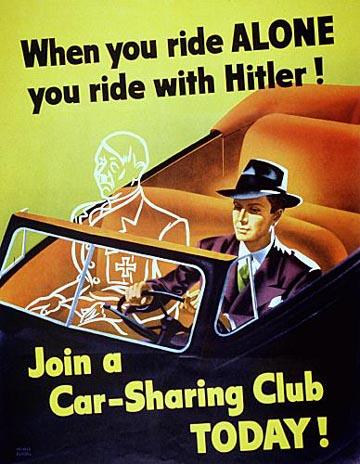
The second World War was a devastating conflict that saw 21 to 25 million soldiers dead, but even regular citizens suffered. Despite relative safety of being hundreds miles away, many lived in constant fear of bombings, food shortages and curfews. The governments had a solution - propaganda!
[This article was originally published on Koobazaur's Blog]
Flyers and posters printed by the thousands encouraged people to stay motivated, conserve resources needed for the war effort, and stay vigilant of traitors. Karaski: What Goes Up... draws from this rich repository of public domain imagery, giving them a second life.
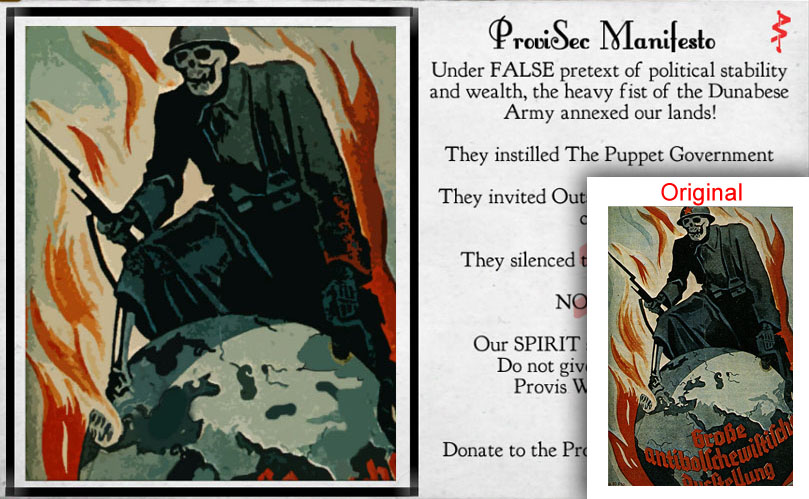
Lacking artistic skill and budget can lead to some creative solutions. Given the game's fictional 1920s setting of conflict, industrial revolution and social struggles, the propaganda posters of the era fit perfectly.
But Karaski does more than just re-use images; thanks to simple Photoshop manipulation, the graphics were altered to fit the new setting while channeling their evocative and imposing tone. In some cases, multiple graphics were combined and retrofitted into brand new pieces of artwork.
Even old photos of the era were dusted away, serving as clues and newspaper illustrations and giving the world an extra depth of authenticity. The photo in an article about a violent protest was actually taken in the aftermath of "Kristallnacht," an anti-Jewish riot in Nazi German. This reference was no accident.
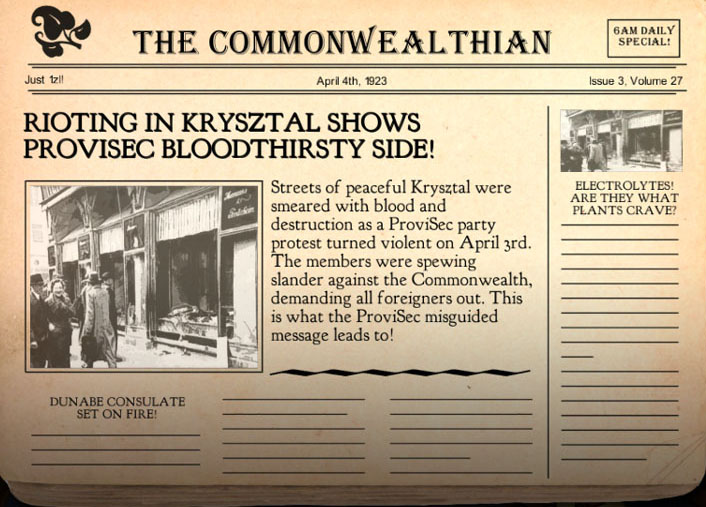
The game takes place on the world's first Airship flying over Dunabe Commonwealth, a fictional federations of nations loosely inspired by the former USSR, Austro-Hungarian empire and even the European Union. Just as its real-world counterparts, Dunabe struggles with a lot of inner conflict. Not all nations are happy to be included, with terrorist-labelled political parties revolting against forced annexation. The pseudo-spiritual Preachers movement has been violently ostracized as well. And yet, the industrial revolution boom allowed Eidson company to spread the metallic claws of its railroads and reap monopolistic benefits.
These turmoils give each group a potential motive for trying to bring the titular airship down. Just as the first Graf Zeppelin branding Nazi swastika, Airship Karaski has become a political symbol of the Commonwealth's prowess and iron-fisted control over its nations. A crash would surely send a powerful message. Who is behind the mischievous plot, however, is mystery for the player to uncover (and influence!) through the game.
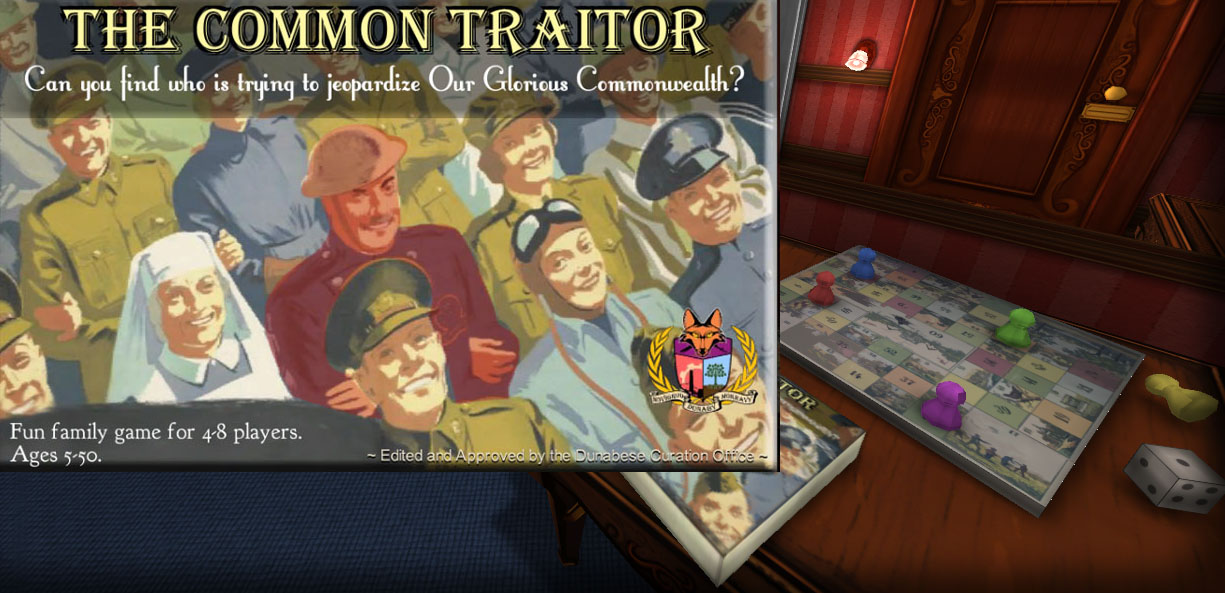
While Karaski takes places amidst political scheming, it is really a game about the passengers of the ship, each struggling with their own form of oppression and self-doubt. Big focus was put on showing what the daily life in the Commonwealth is like, where a simple board game is used to foster feelings of nationalism and a child's book designed to instill the values of a traditional, early 1900s family household.
Against this rich backdrop, the player will meet the stern Captain having doubts about dedicating his life to a political cause, an irritable Doctor torn between his love for science and call of religion, a lax Aristocrat lady struggling with and leveraging social gender norms, and even the very Architect of the ship questioning the emotional cost of building the flying behemoth. Numerous secondary characters will give further insight and raise questions.
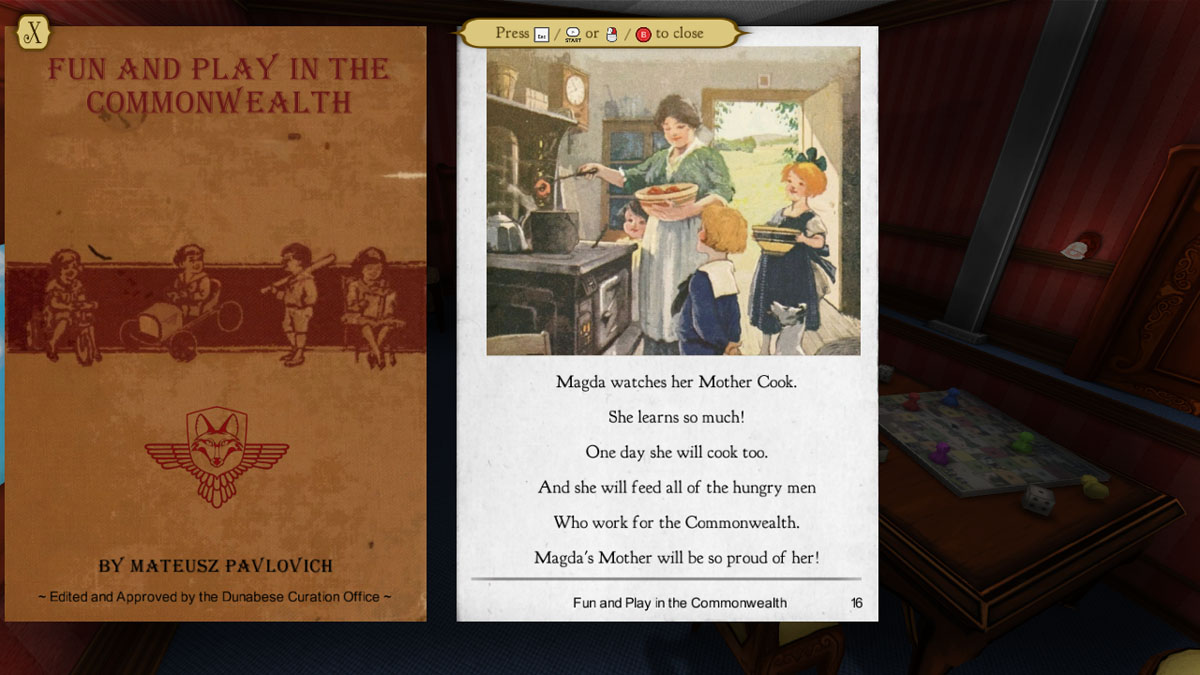
Sneaking through four realistically designed decks, scavenging for clues in private suites and even enjoying a friendly drink and conversation, the player will learn and subtly change how the underpinning political and social drama affects each of the passengers personally, and what they are really hiding.
The game "Karaski: What Goes Up..." released for PC and is available from the Steam digital store.
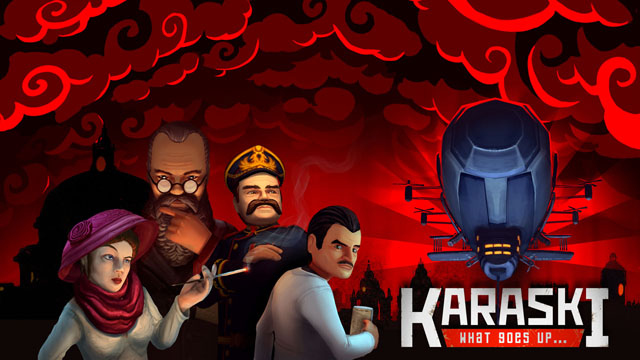
Public Domain Images courtesy of Archives.gov and WikiMedia Commons
About the Author
 I am a Polish-American, Game Dev and web consultant. I founded Unbound Creations, publishing two commercial titles so far (“Postmortem: one must die” and “Karaski”). I am currently working on small, browser-based experimental projects. Aside from code, I used to be a cinematographer in Los Angeles, I survived the harsh winters growing up in Poland, I had the worst hangover of my life in Japan, I (almost) stole a sheep in North Ireland, and I learned to haggle like a pro in India.
I am a Polish-American, Game Dev and web consultant. I founded Unbound Creations, publishing two commercial titles so far (“Postmortem: one must die” and “Karaski”). I am currently working on small, browser-based experimental projects. Aside from code, I used to be a cinematographer in Los Angeles, I survived the harsh winters growing up in Poland, I had the worst hangover of my life in Japan, I (almost) stole a sheep in North Ireland, and I learned to haggle like a pro in India.
Read more about:
BlogsYou May Also Like